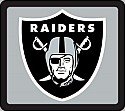
Take a close look at the picture to the left. It is a gravestone at Arlington National Cemetery and it is the final resting place for two American heroes. I didn't intend for this blog to become so focused on Robert E. Lee and James Longstreet and I promise to stop as soon as this obsessive focus stops. I did mention that Longstreet and other Confederate heroes had a fight over how the southern history of the war should be recorded. Eventually, James Longstreet was hit from so many sides with criticism that in his old age his attitude towards Lee took a slight nose dive. Lee wasn't alive to defend himself but I believe that Longstreet still viewed Lee as a good friend. Few realize that Longstreet named one of his sons after Robert E. Lee. Longstreet described his and Lee's wartime relationship as "affectionate, confidential, and even tender, from first to last." When Louise Longstreet gave birth to a son in October 1863, the couple named him Robert Lee Longstreet.
Robert Lee Longstreet was son of Lieutenant General James Longstreet, Confederate States of America. He was born at Petersburg, Virginia, on 20 October 1863. He served for a time with the United States Army Quartermaster Corps. He enlisted on October 1, 1917 and was discharged from duty on September 20, 1919. He died on 1 August 1940 and was buried in Section 15 of Arlington National Cemetery, with his brother, James Longstreet, Jr., Lieutenant Colonel, United States Army.
James Longstreet Jr., the son of James Longstreet, Lieutenant General, Confederate States of America. (31 May 1865-1922). He served in the United States Army Cavalry, serving in World War I. He died on July 15, 1922 at Fort D. A. Russell, Wyoming, of heart disease while participating in a review of the 13th United States Cavalry. It amazes me that the two sons of a man who tried to overthrow the Union in the Civil War has two sons buried in Arlington National Cemetery!
Longstreets feelings for Lee are obvious because he named his own son after him. In a letter written just after Gettysburg, Longstreet wrote "The truth will be known in time, and I leave that to show how much of the responsibility of Gettysburg rests on my shoulders." At the time General Longstreet didn't know at the time how heavy that "responsibility" would be. It would define his military career, his later life, and cause many historians to have a negative opinion of him.
The above information was taken from the following webpages:
Wert, Jeffry D., James Longstreet: Robert E. Lee's Most Valuable Soldier. Article located at http://www.historynet.com/historical_figures/3446371.html?page=1&c=y as of July 17, 2007





No comments:
Post a Comment